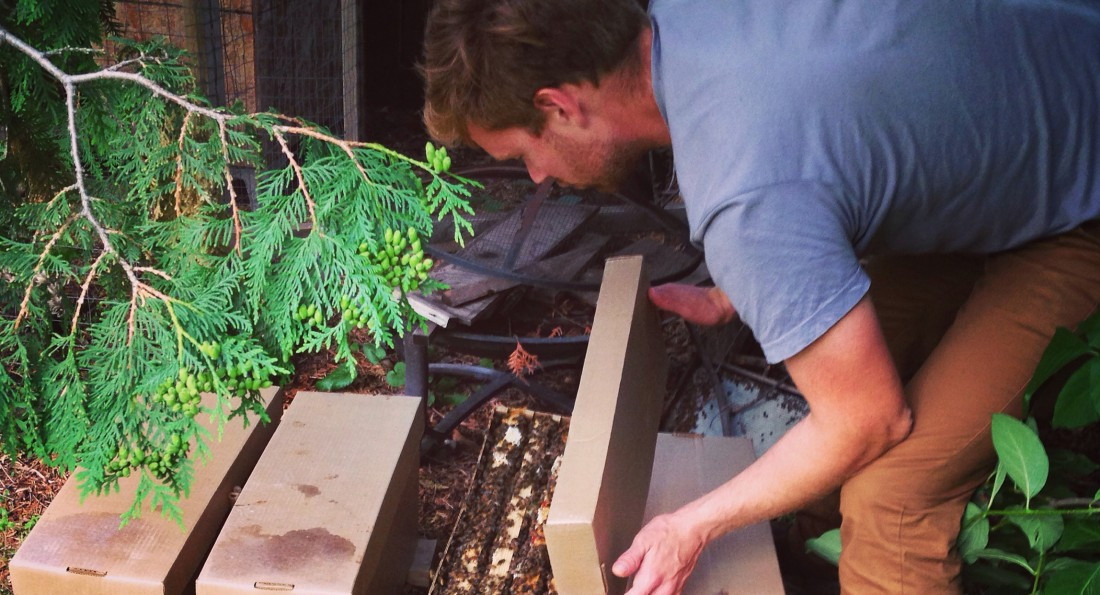Buzzing with Activity
Urban beekeeping regulations move ahead
This summer, a change in city bylaws allowed Winnipeggers to sweeten their routine with local honey produced by bees in downtown Winnipeg.
Chris Kirouac, co-founder of Beeproject Apiaries, is encouraged by the results so far.
“It’s been fantastic. Winnipeg has bought into it and decided to be pollinator-friendly,” Kirouac says.
“There’s a bit of a grassroots movement where people are way more aware than they were before.”
As the law stands now, beekeepers in pre-approved zones can have up to four hives on site if they apply for a permit.
Beeproject had seven urban hives set up by late July, including hives in the Forks and the Manitoba Hydro Building, but Kirouac would like to see the permitted zones expanded.
“The downtown committee agreed that they would approve beekeeping within what the downtown committee considers downtown,” Kirouac says. “It’s a very particular region of the core of Winnipeg.”
John Russell, the vice president of the Red River Apiarists’ Association, has been directly involved in this process. He agrees that there is more work to be done, but it won’t happen overnight.
“It has to be planned out and thought out,” Russell says. “It’s not as uncomplicated as saying ‘hey, should we do that?’ If it were a building, it would be on the drafting table.”
Kirouac agrees it’s a work in progress.
“They’re kind of studying how the other cities do it, and we’ve talked to many hobbyists who’ve set up hives throughout the city, and it would be really great to bring them into the fold,” he says.
“(Winnipeg officials) are really doing their due diligence. The city is looking for a framework to do it in.”
Kirouac is excited to see some of the steps the city has taken on its own to protect its pollinators. Any registered hives automatically have a mosquito spray buffer set up around them, as the malathion in the spray is toxic for bees.
“We thought it was pretty incredible that they took that step on their own,” Kirouac says.
Russell notes taking time to draft up new bylaws is important for the wellbeing of the bees and beekeepers.
“It’s animal husbandry. If someone dropped off six chickens on your doorstep, would you know what to do with them?” he asks.
“Part of our (Red River Apiarists’ Association’s) mandate is mentoring, making sure the people who are interested in undertaking it are doing it intelligently to avoid hazards down the road.”
These hazards novice beekeepers may run into include diseases that spread through their hives and affect neighbouring bee colonies.
As far as the bee population at large, Russell says numbers have improved in recent years.
“The colony has rebounded, but it’s not out of the woods,” Russell says. “We need to not just be rebounding but excelling. Just because we’re not in a global crisis about it doesn’t mean it doesn’t deserve our full attention.”
Published in Volume 71, Number 1 of The Uniter (September 8, 2016)








